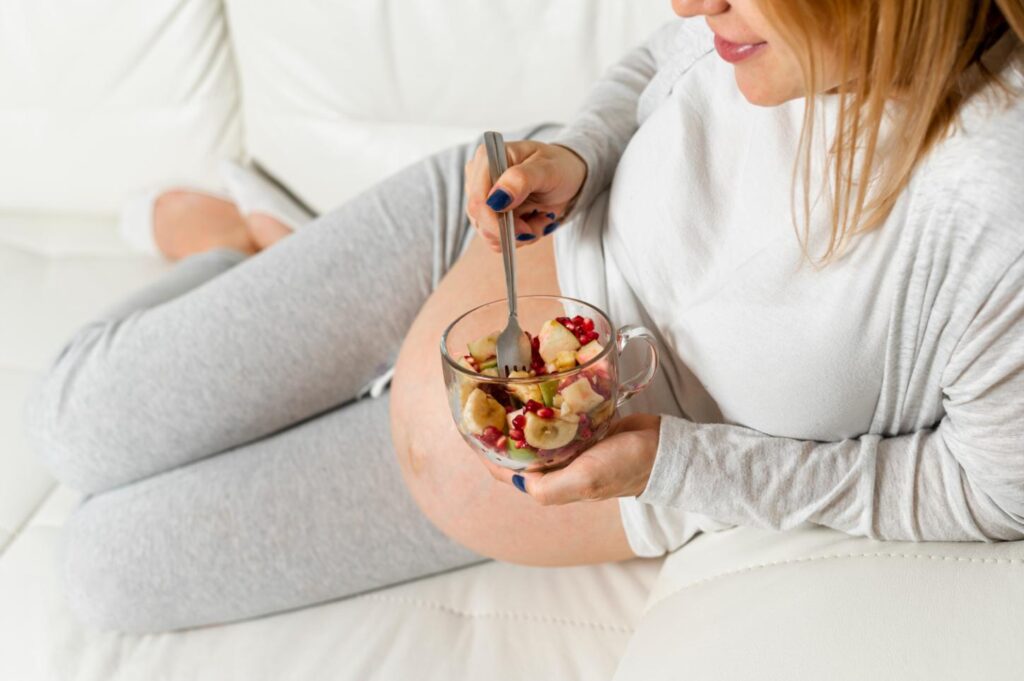
Beginning the journey of IVF treatment can be exciting, but it can also feel overwhelming. In the IVF process, medical procedures are very important; however, diet and lifestyle can affect fertility outcomes significantly. Most of the medical community and dietitian community agree that what someone eats, can have an impact on hormone balance, egg quality, sperm health and reproductive success. For a customized and detailed analysis, it is best to enquire with dieticians and our team at KJK Hospital is right here to help you on this. Meanwhile, you can read and check out on the research that we have laid out for you.
If you are preparing or currently going through IVF treatment, eating well can help support your body during the process. In this guide we will cover what are the best foods to eat during IVF, how they help, and answer some common questions that people have.
Why is Diet Important During IVF Treatment?
When going through IVF, your body is going through hormonal changes and medical intervention. Your body will benefit from eating nutrient-dense foods to make sure you are getting the necessary vitamins and minerals to:
- Promote healthy egg development
- Enhance sperm health in male partners
- Promote uterine lining for embryo to implant
- Reduce inflammation and stress
- Increase overall energy levels and immune system
Simply put, food symbolizes a powerful tool to support further success with IVF treatment.
Best Foods to Eat During IVF Treatment
Here’s a list of foods that can boost your fertility health and increase your chances of success during IVF treatment.
- Leafy Greens and Vegetables: Spinach, kale, broccoli, and other leafy greens are packed with folate, iron, and antioxidants. Folate plays a critical role in DNA synthesis and egg development.
- Protein-Rich Foods: Opt for lean proteins like chicken, fish, eggs, lentils, and beans. Protein helps balance blood sugar levels and supports healthy ovulation.
- Whole Grains: Brown rice, oats, quinoa, and whole wheat bread are excellent sources of fibre and B vitamins. They regulate insulin levels and keep energy stable.
- Healthy Fats: Avocados, olive oil, nuts, and seeds provide omega-3 fatty acids that reduce inflammation and improve egg quality.
- Dairy Products: Full-fat yoghurt, milk, and cheese can provide calcium and vitamin D, both essential for reproductive health.
- Fruits Rich in Antioxidants: Berries, oranges, kiwis, and pomegranates are loaded with antioxidants that protect egg and sperm cells from damage.
- Hydrating Foods and Water: Staying hydrated is critical during IVF. Cucumbers, melons, and regular water intake help maintain proper hormonal balance and nutrient absorption.
Foods to Avoid During IVF Treatment
Just as some foods can help, others may negatively affect your IVF journey. Try to avoid:
- Processed and fried foods (can cause inflammation)
- Excess sugar and refined carbs (spike insulin levels)
- Too much caffeine (linked to lower implantation rates)
- Alcohol (affects hormone balance and egg quality)
Frequently Asked Questions
1. What food increases IVF success?
The best foods include protein, high-antioxidants, omega-3 fats, and whole grains. Suggestions by fertility specialists are nuts, leaf greens, lean protein meats, avocados, and seeds.
2. What should I eat before an embryo transfer during IVF treatment?
You can eat a balanced meal with lean protein, whole grains, and vegetables; however, try to avoid heavy or greasy foods because they can cause bloating. You should be well-hydrated on water before the embryo transfer.
3. Can my diet improve my egg quality during IVF?
Yes, some foods are so rich in nutrients these nutrients perform cellular maintenance, which helps cellular health and therefore potentially can improve egg quality. Leafy greens, berries, legumes, whole grains, omega-3s like salmon and flaxseed are suggested because each can work to improve egg quality.
4. What foods should I avoid?
Be sure to avoid: processed foods, very sugary snacks, excessive caffeine, excessive alcohol, and trans fats. These can affect your hormones and consequently reduce the outcome of your fertility.
5. Should I consider a Mediterranean Diet during IVF treatment?
Yes, studies suggest a Mediterranean-style diet with an emphasis on high vegetables and fruit intake, whole grains, legumes, olive oil, and fish is superior for fertility and potentially results in improved IVF success rates. +
Also Read: The Impact of Diet on Fertility: Foods to Avoid for Optimal Reproductive Health
Conclusion
Your diet will support your body during the IVF process. By emphasizing whole foods with plenty of nutrients and avoiding processed foods, you create the optimal environment for conception and healthy pregnancy.
Keep in mind: Every person is different. Always consult with your doctor or a fertility nutritionist for a food plan that is right for you during IVF.





